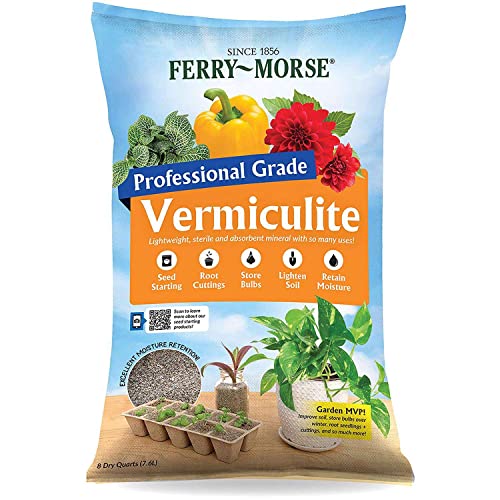Giving the plants their absolute needs from the soil, fertilizer, insecticides, cuttings, pruning, and more—helps them grow faster and strong. Adding vermiculite to the soil mix provides more space for the roots to expand and the plants to thrive. What can vermiculite do? Can it hold water, and for how long? We have the answers to your questions.
Vermiculite can hold water because it expands and swells. It can retain moisture for four days in summer and one week in the colder season. Vermiculite also lasts for years, and you can reuse it over time.
Would you like to learn more about vermiculite and how to use it? What makes vermiculite the best choice for combining potting mix? We searched the web to compile the information you need. Continue reading through this post as we delve more into the topic.
![Mixing vermiculite granules pellets with black gardening soil improves water retention, airflow, root growth capacity of all the plants growing in pots. Vermiculite is a hydrous phyllosilicate mineral. - Does Vermiculite Hold Water [& For How Long]](https://gardentabs.com/wp-content/uploads/2022/11/Mixing-vermiculite-granules-pellets-with-black-gardening-soil-improves-water-retention-airflow-root-growth-capacity-of-all-the-plants-growing-in-pots.-Vermi.png)
How Long Does Vermiculite Hold Water?
It is necessary to water vermiculite every four days during summer to retain its moisture, while once a week in colder climates. Vermiculite can hold water because of its limited expansion clay with the capacity to shrink and swell, which is ideal for germinating seeds and propagating plants.
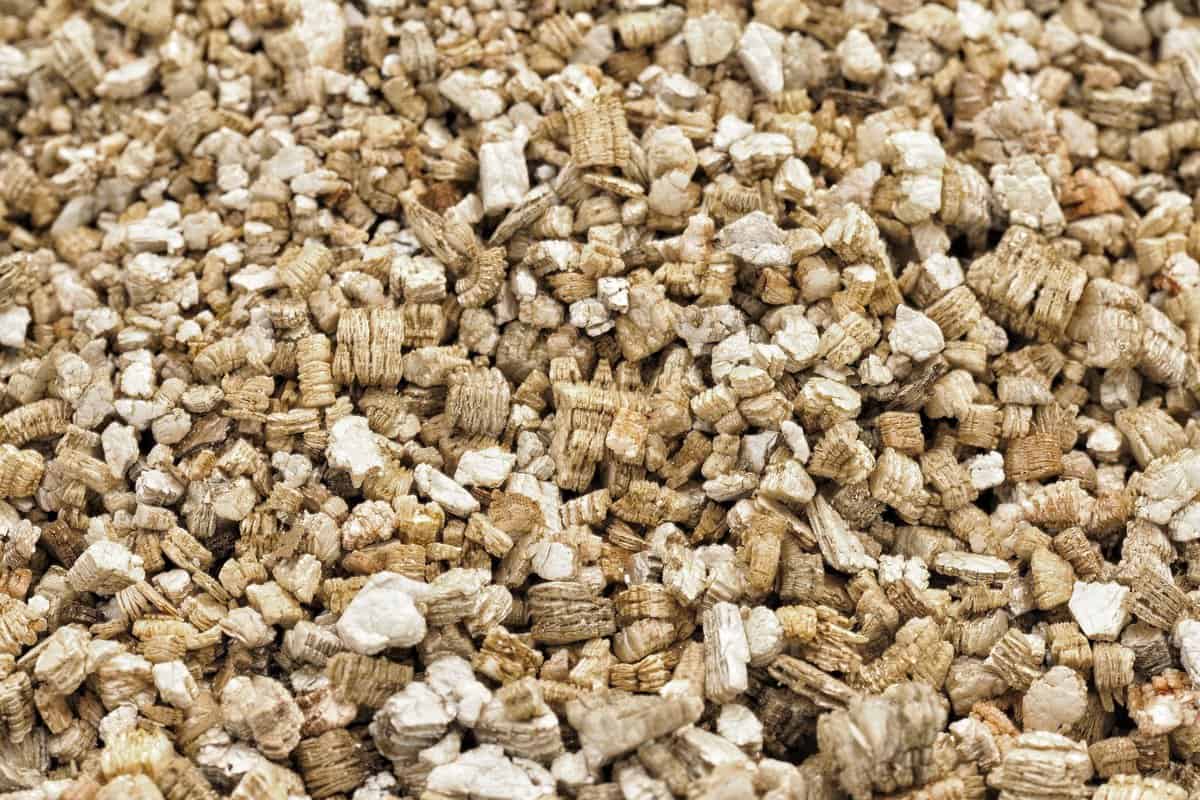
It expands up to twelve times once in contact with water. Vermiculite does not quickly decompose, so it lasts for years, and you can reuse it.
You can replace peat moss with vermiculite, though this does not retain water as much as peat moss can. Add more water if you use vermiculite as a mixture with potting soil for your water-loving plants.
Vermiculite is not advisable for succulents, cacti, or rhododendrons because they need well-drained soil unless you use a smaller amount for drainage with other drainage-friendly soil.
Can I Use Vermiculite In Succulents?
Succulents love moist and damp soil, which is why vermiculite is ideal to combine with soil to help retain water. Use vermiculite in small portions and mix pumice, pebbles, or other coarse materials for cacti and succulents to ensure the soil mix is well-drained.
Does Vermiculite Toxic To Plants?
Vermiculite is natural, non-toxic, odorless, lightweight, and does not decompose over time, which is why it is the best choice in organic farming and gardening. It does not develop mold and consists of a neutral ph balance.
Is Vermiculite Toxic To Humans?
Vermiculite is not toxic to humans. Although, vermiculite is composed of asbestos which can cause asbestosis. Humans who inhale vermiculite and expose over time may experience lung-related illnesses such as asthma, allergies, pneumonia, and more.
Tips for handling vermiculite:
- It is advisable to wear a protective mask if you use vermiculite in gardening or farming to avoid inhaling small particles.
- Wear an eye cover to avoid irritation.
- Use hand gloves to prevent skin allergies.
- You can mix potting soil instead of using pure vermiculite.
What Are Available Vermiculite Sizes?
There are two types of vermiculites available:
Crude Vermiculite
Crude vermiculite is not yet cured, heated, or expanded; a raw mineral that has not gone through the process of refining and curing. This type of vermiculite has five grades based on their sizes such as: fine, medium, superfine, large, and micron. These are not advisable to use in gardening.
Exfoliated Vermiculite
Exfoliated vermiculite has already gone through the process of refining and expanding the mineral using high temperatures, which are common in gardening.
What Are Available Exfoliated Vermiculite Grades?
Exfoliated vermiculite is available in five grades based on its weight: micron, fine, medium, superfine, and large.
Micron-Grade Vermiculite
The micron-grade is the lightest exfoliated vermiculite, a typical mixture in the mushroom substrate.
Click here to see micron on Amazon.
Fine-Grade Vermiculate
Fine-grade vermiculate is ideal for seed starting, potting garden, and reptile bedding. This grade can be mixed with potting soil.
Click here to check fine-grade vermiculite on Amazon.
Superfine Grade Vermiculite
The superfine grade is also ideal for mixing mushroom substrate and reptile bedding. You can mix superfine vermiculite with perlite and soil.
Medium-Grade Vermiculite
Medium-grade exfoliated vermiculite is best for several uses around your garden and home. This grade is ideal for growing plants that love moist soil.
Click here to check medium-grade vermiculite on Amazon.
Large or Coarse-Grade Vermiculite
Coarse-grade vermiculate is heavy and chunky. This grade is ideal for promoting aeration and well-draining soil mix to keep the plants healthy. This product is non=flammable, pH neutral, and non-toxic.
Click here to check coarse-grade vermiculite on Amazon.
How To Use Vermiculite In Gardening?
There are different ways to use vermiculite in your gardening projects:
Root Cuttings
Vermiculite is ideal for propagating root cuttings. You can use a fine or medium grade to grow the roots of houseplants.
- Use a container or a jar and fill it with vermiculite.
- Water it, soaked but not flooded.
- Plant the cutting. Fill the surface with thin vermiculite.
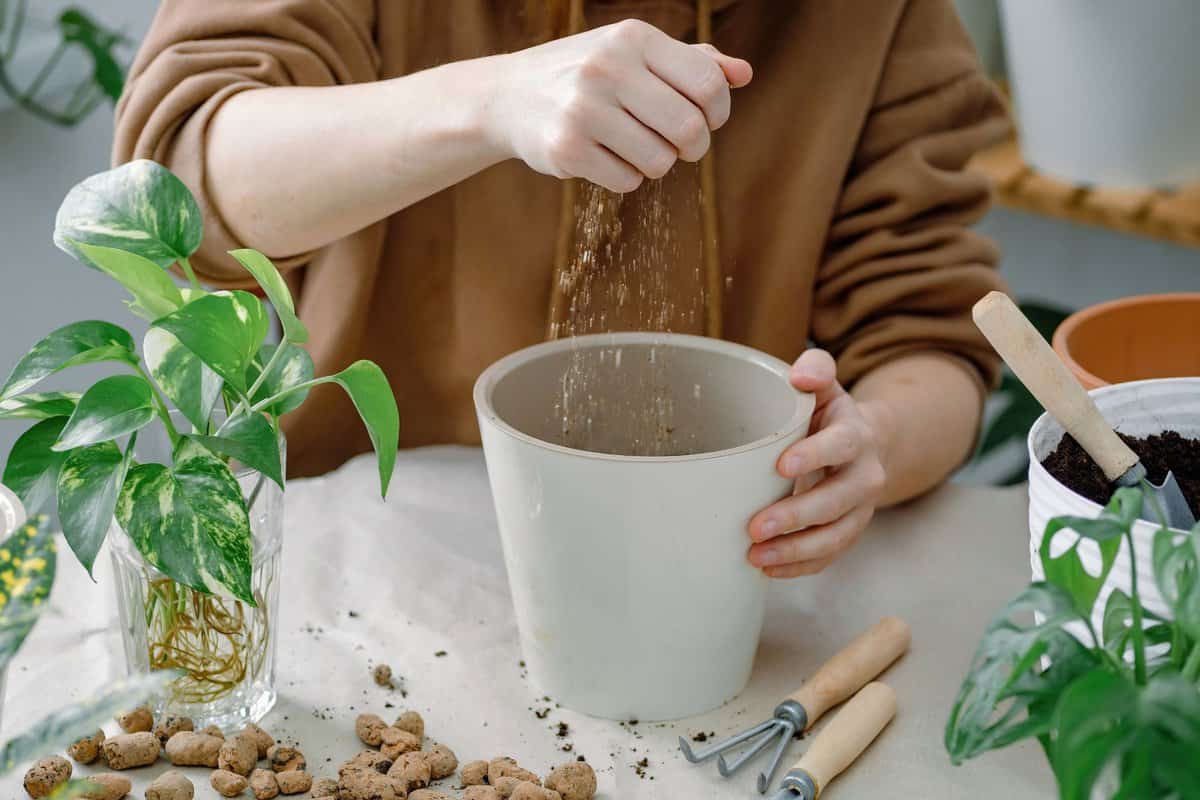
Soil Mix
Vermiculite can mix well with compost, peat moss, and other potting soil mixes for a lighter medium mixture. This soil mix will provide drainage and give the roots enough room to grow.
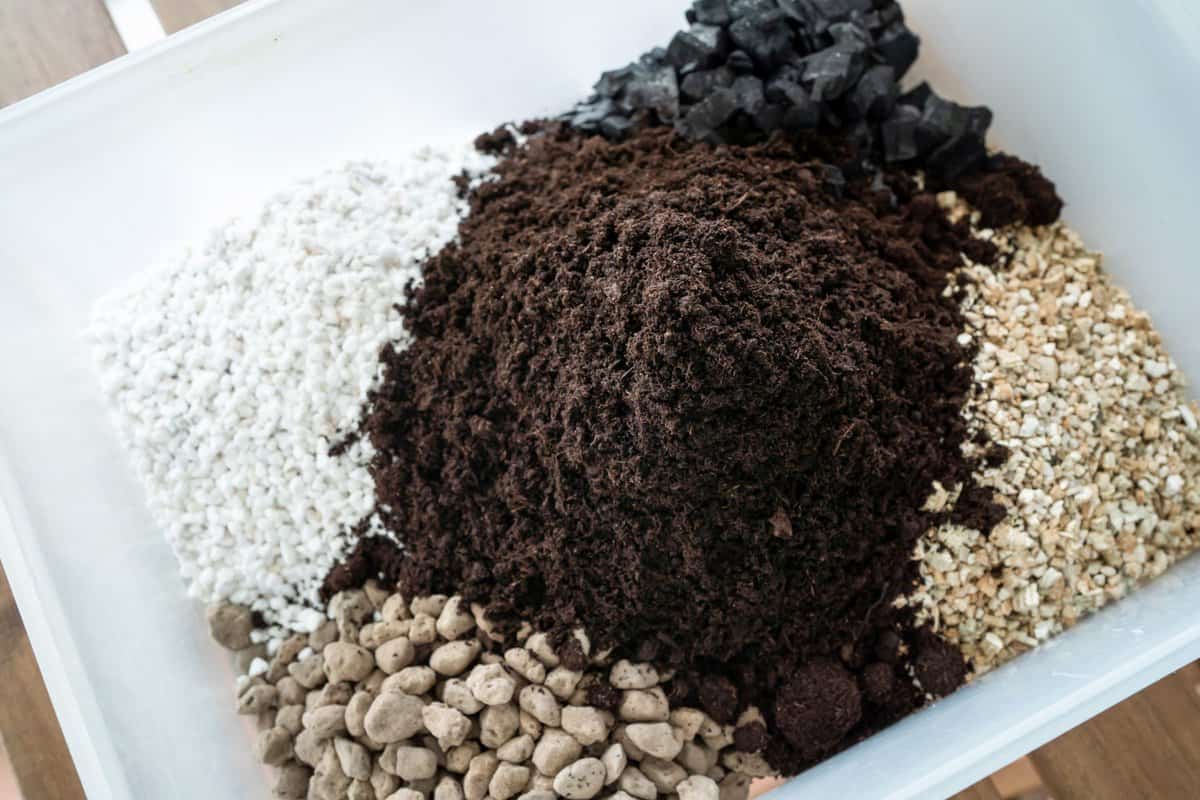
Germination
Aside from root cuttings, vermiculite can also use in seed germination. Mix it with pet moss or soil for best results.
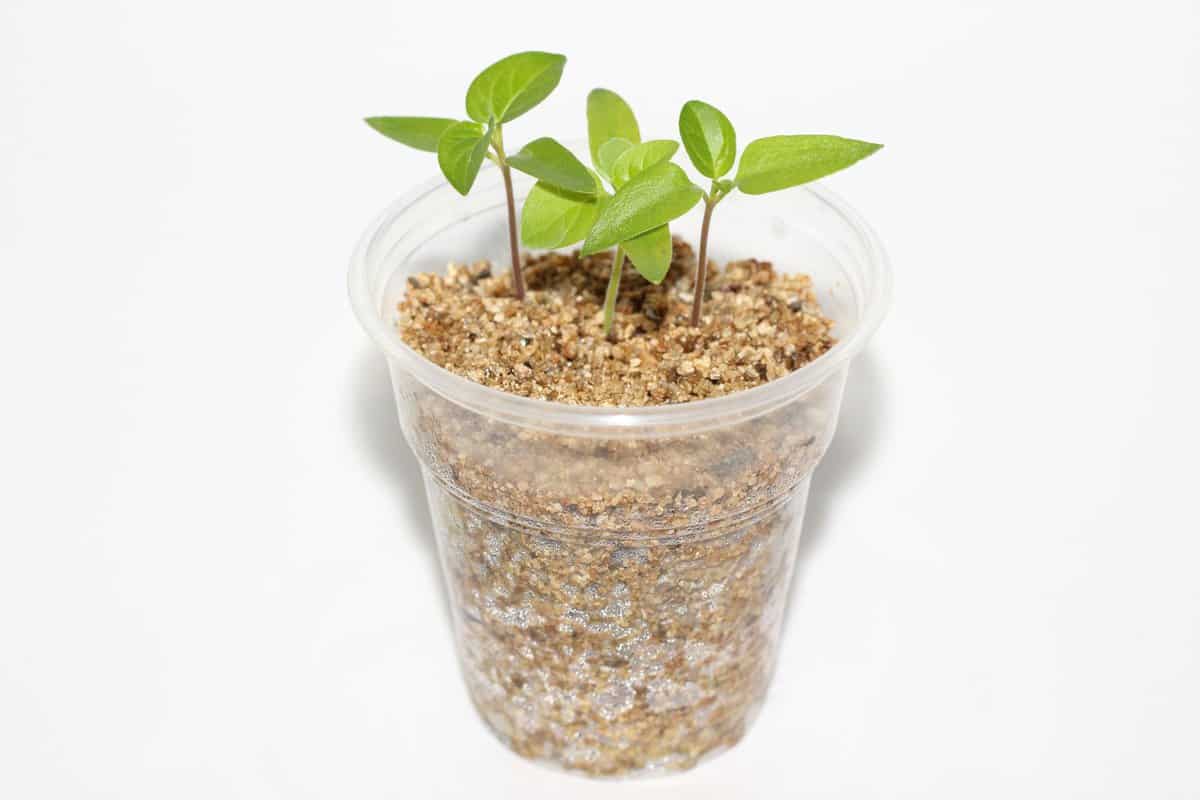
Water Retention
Since vermiculite expands when watered, it holds a good amount of moisture which is perfect for moist retention. You can mix vermiculite with soil for better drainage and prevent root rot.
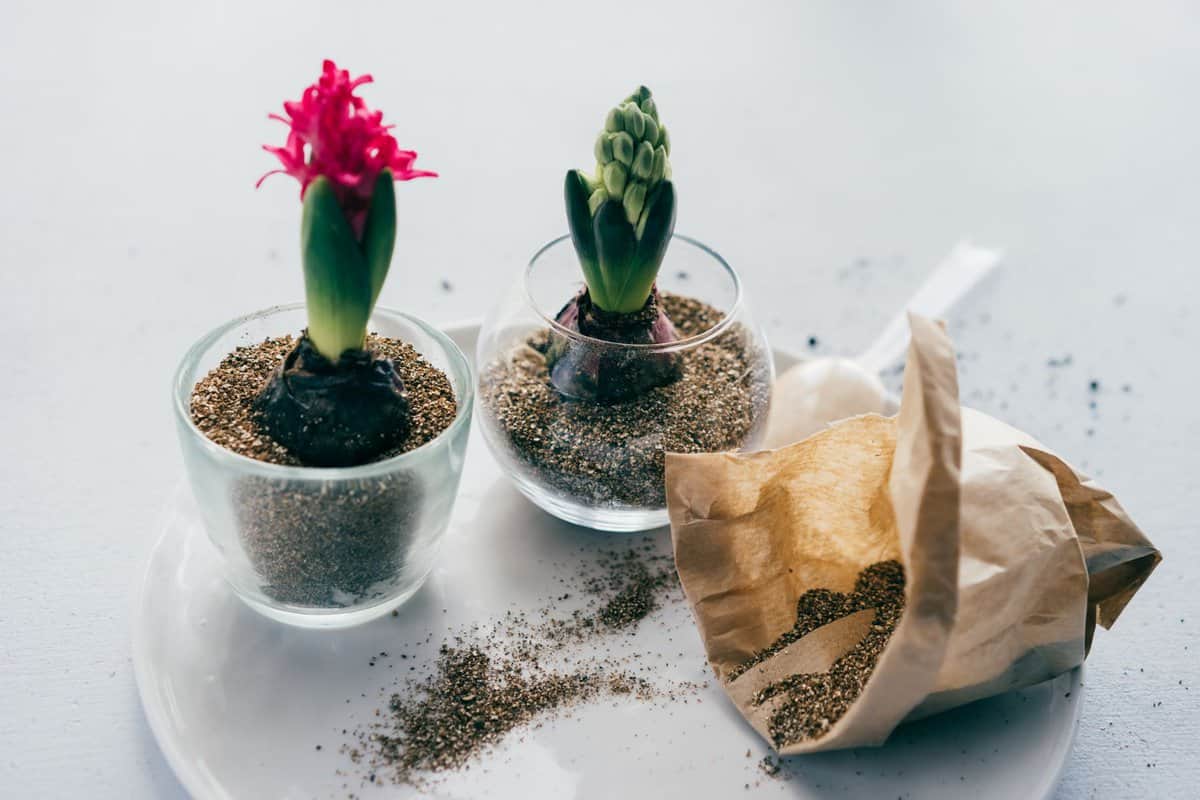
Aeration
Vermiculite helps prevent soil compacting and gives adequate air, water, and nutrients.
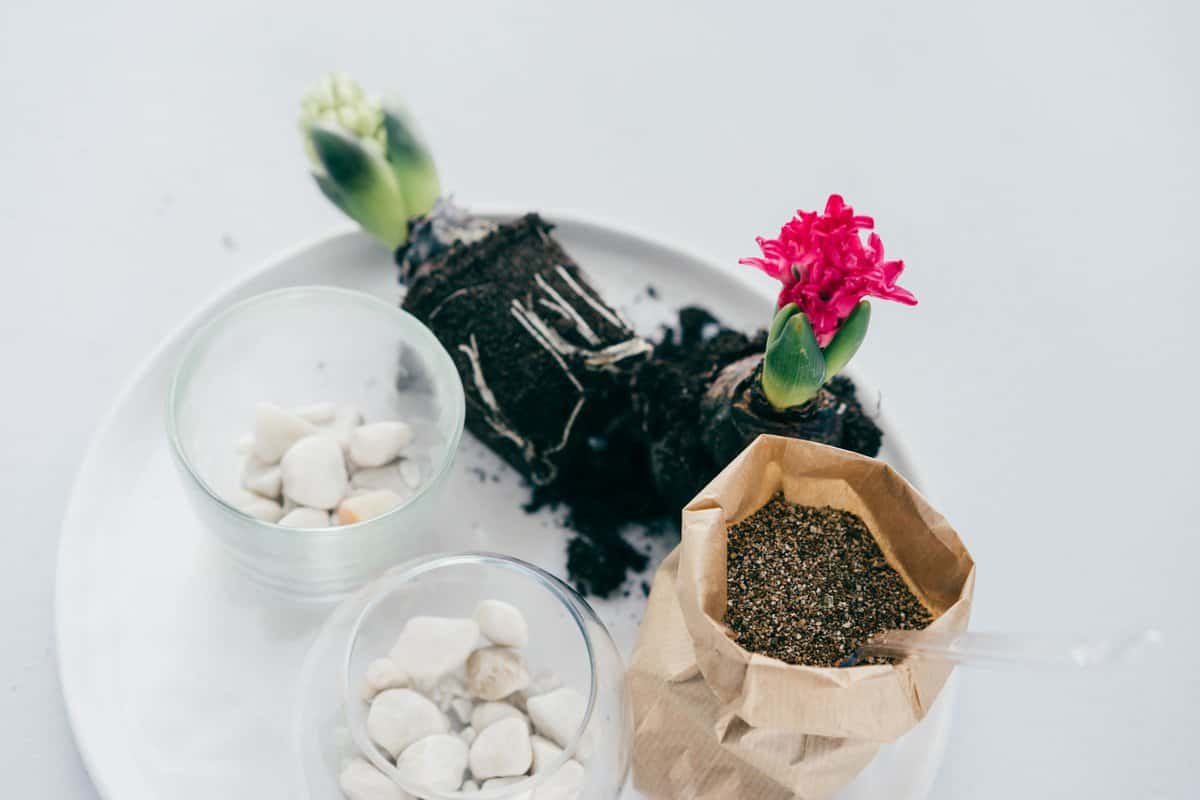
Flower Arrangement
Vermiculite is a beautiful addition to your cut flower arrangement in a glass vase, and it helps the flowers last longer.
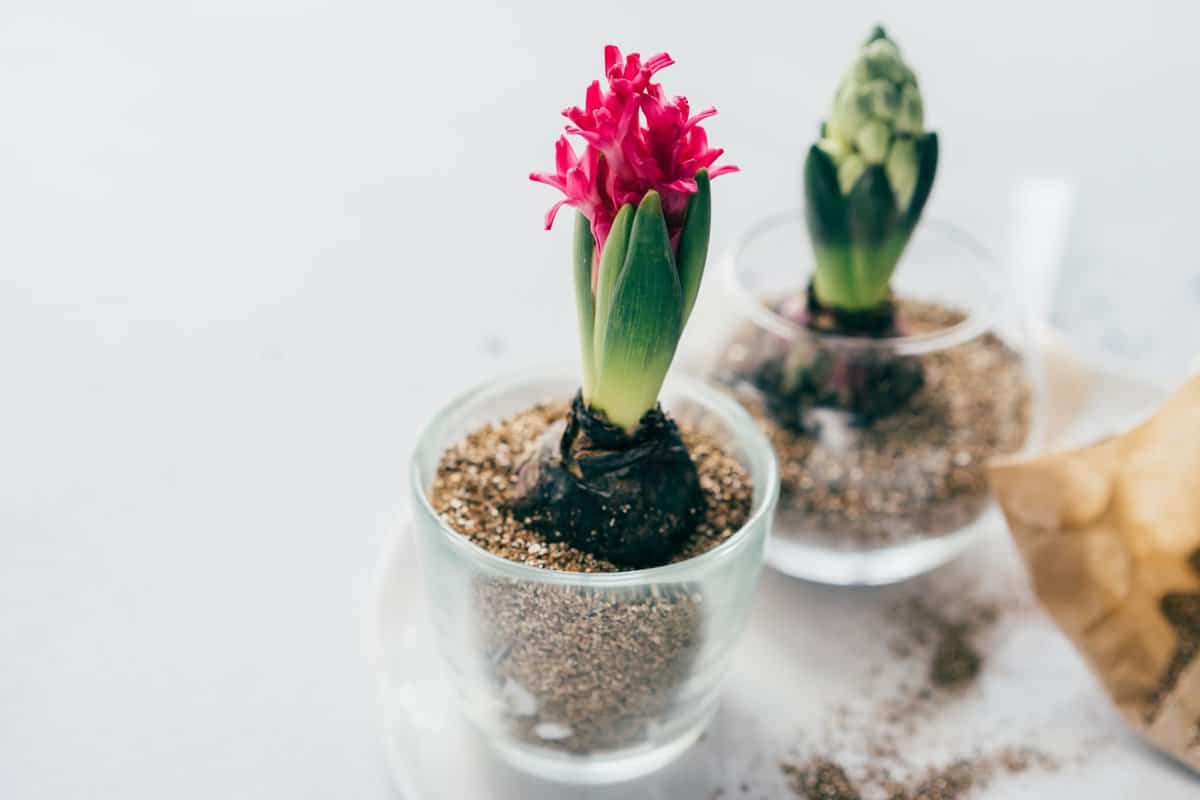
Lawn
You can mix vermiculite and soil before applying lawn seeds.
- The ideal measurement is three cubic feet of vermiculite per thirty square meters of soil.
- Cover the surface with more vermiculite, about five centimeters thin.
- Water the seed and the soil mix adequately.
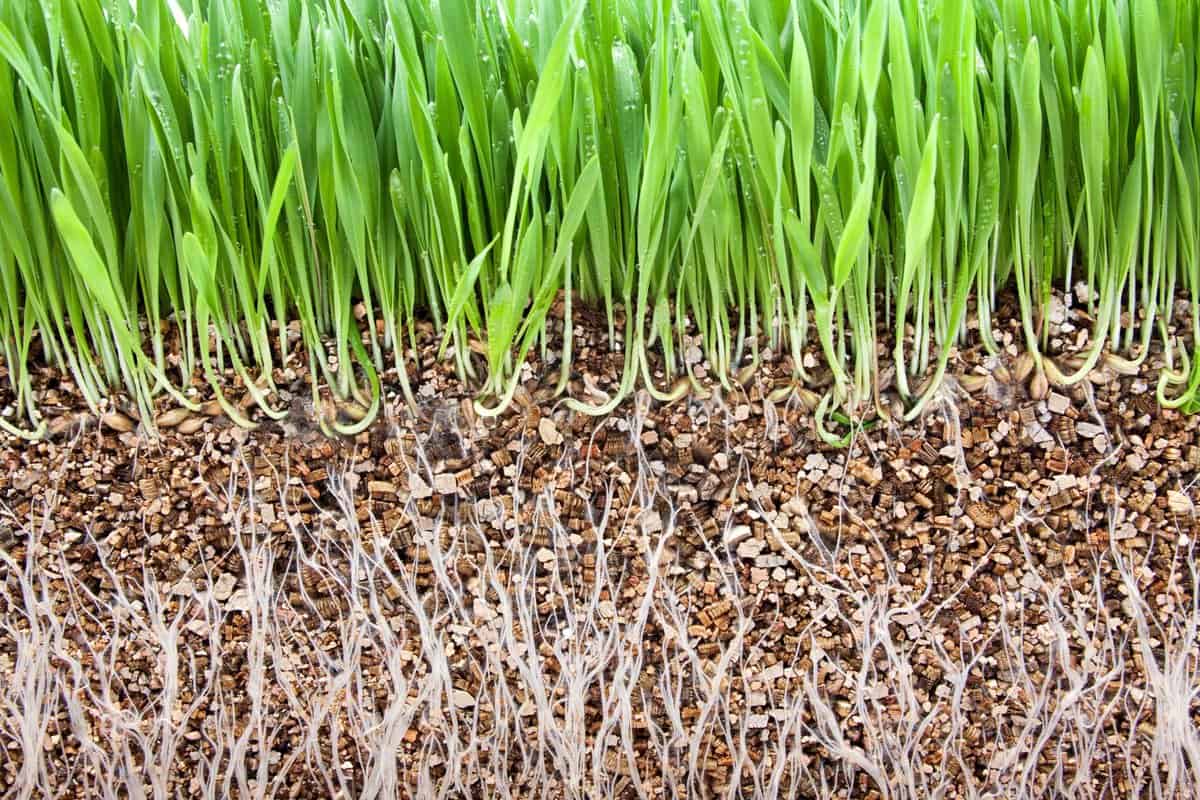
Flowers And Vegetables
Mixing vermiculite with sandy garden soil will promote retaining moisture.
- Dig around three inches and plant the vegetable or flower of your choice.
- Cover the surrounding plant with vermiculite and soil mixture.
- Water thoroughly.
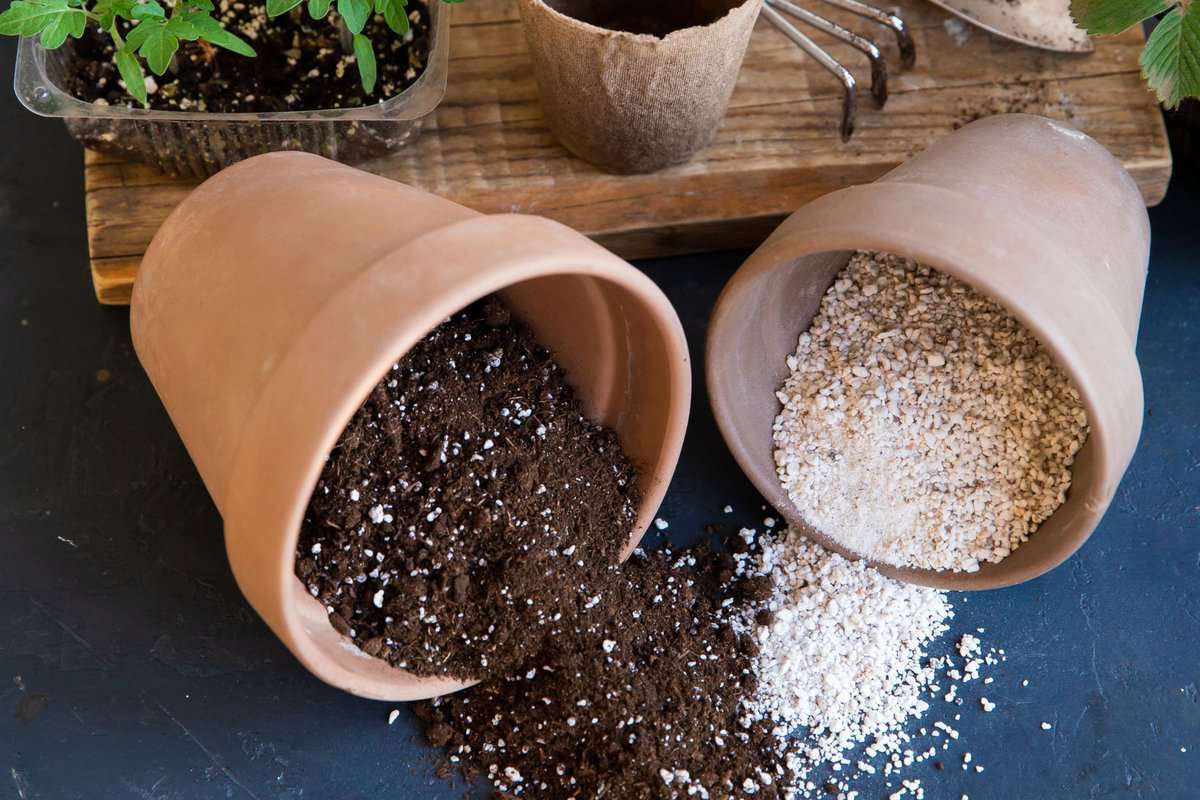
What Are The Best Vermiculite To Use?
Listed below are recommended vermiculite for gardening:
Perfect Plants Organic Vermiculite Medium-Grade
This medium-grade organic vermiculite is ideal for potted plants indoors and outdoors with no drain holes. It is enriched with natural conditioners to release the required nutrients for plant growth. Vermiculite provides aeration for the roots to grow and expand.
Click here to check organic vermiculite on Amazon.
Hoffman Professional Grade Vermiculite
Hoffman offers an efficient soil conditioner that loosens soil and promotes aeration for root growth. This vermiculate has no size and no color, which is best to blend with perlite or peat moss for the best results of soil mix.
Click here to check professional-grade vermiculite on Amazon.
Burpee Natural Fine Grade Horticultural Vermiculite
Fine-grade vermiculite is lightweight and perfect to combine with soil for containers and pots indoors and outdoors. It enhances water and nutrient retention and promotes aeration for root growth after transplanting.
Click here to check fine-grade vermiculite on Amazon.
Josh's Frogs Vermiculite
Josh's Frogs Vermiculite can be used in different ways, such as incubating animals like snakes, turtles, and lizards, as a substrate for mushrooms, and as growing plants. You can use this product in containers, seed germination, flower bulb overwintering, and root cuttings.
Click here to check vermiculite on Amazon.
Organic Coarse Vermiculate For Indoor And Outdoor Plants
This vermiculite has an additive conditioner, perfect for the organic growth of hydroponics, mushrooms, and gardening. All are 100% natural, with a neutral pH level, non-toxic, and sterile.
Click here to check organic coarse vermiculate on Amazon.
Gardenera Premium Horticultural Organic Vermiculate
If you are looking for an organic vermiculate, this works for you. This premium vermiculate is perfect for all indoor and outdoor potted plants, has a natural conditioner to release essential nutrients, and provides space for roots to grow and expand.
Click here to check premium organic vermiculate on Amazon.
Summary:
After learning the benefits of vermiculite in gardening and propagating, you can start planting your seeds and cuttings. Ensure that the plant species you use can thrive in vermiculite potting mix. Enjoy gardening!
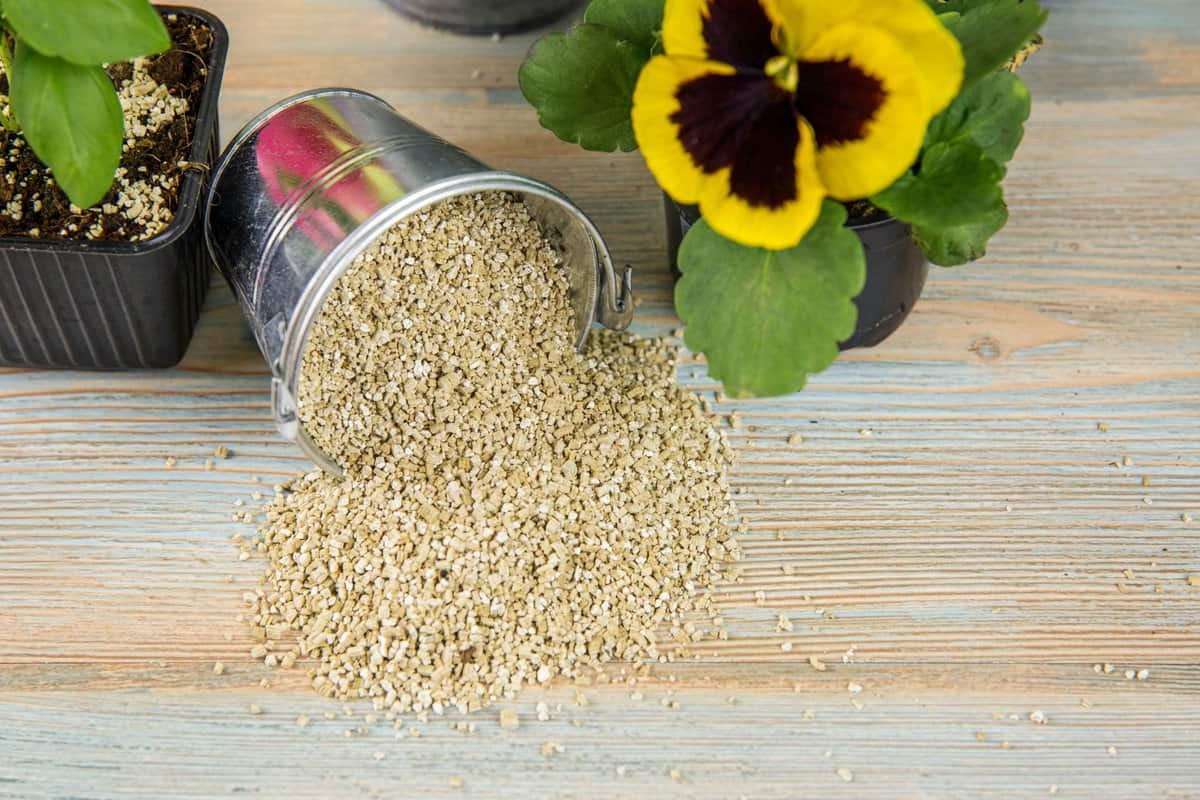
If you want to learn more about vermiculite and other soil additive options, you may read this post:
Vermiculite Vs. Perlite Vs. Pumice: Pros, Cons, And Differences
To learn more about vermiculite as a substrate for growing mushrooms, check out this post:
Do You Need Vermiculite To Grow Mushroom?
If you are looking for the best fertilizers for hydrangeas, learn more about them in this post:
4 Best Fertilizers For Endless Summer Hydrangeas [And How To Use Them]






